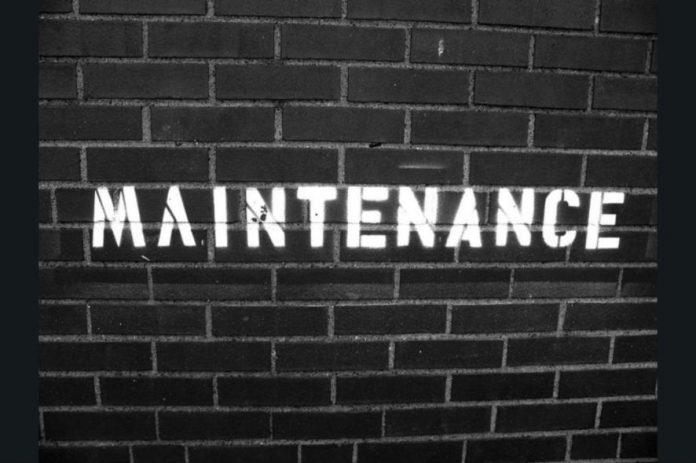This article has been written by Khyati.
Table of Contents
Introduction
The concept of maintenance to the wife is well known and most prevailing in Indian society, but many of us don’t know about the husband’s right to claim Maintenance. As we all know, Indian law is based on equality before the law; thus, both husband and wife are entitled to claim maintenance according to the law, but there are some conditions on the husband’s right to claim maintenance.
Meaning of maintenance
The term “maintenance” can be described as something that can provide for necessities of life such as food, clothing, shelter, education and medical expenses.
It is the financial support paid by the wife or the husband, which covers all the basic requirements of life.
The main reason behind this provision of maintenance is to provide financial support to the incapable husband, divorced wife or aged parents etc.
Legal provisions
The provision of husband’s right to claim Maintenance from their wives is provided under the Hindu Marriage Act, 1955. Section 24 of the Hindu Marriage Act provides for the Maintenance of Pendente Lite and the expenses of the proceeding to the husband. Section 25 provides the husband with the right to get permanent alimony and Maintenance. The term “Maintenance’’ here includes a wide range of things such as food, shelter, clothing and other necessities which a person needs to sustain his/her life:
- Under Section 24, a “deserving man” who does not have an independent income sufficient for his living and support and does not have the necessary expenses for the proceeding can claim Maintenance from his wife if his wife can afford to do so.
- Section 25 allows permanent alimony and Maintenance to the husband. It obligates the wife to pay such gross sum or monthly or periodical sum for the husband’s lifetime, keeping in mind the wife’s income and property. The court can modify the order if there found any change in circumstances. For example, in the case of mutual consent divorce, if the parties agree not to claim Maintenance, the court can grant Maintenance according to the case’s circumstances and facts.
Types of maintenance
Under Hindu Marriage Act, 1955, there are two types of maintenance explained under Sec. 24 and 25:
Maintenance Pendente lite and expenses of proceedings (Sec. 24)
In any proceeding, if it appears to the court that either the husband or the wife as the case may be, has no independent income source for his or her support and the necessary expenses of the proceeding, the court can, on the application of the petitioner, i.e. wife or husband, order the respondent to pay the costs of the proceeding to the petitioner.
Thus, under this Section, a deserving husband who is not having an independent income enough for his support and necessary expenses of the proceeding can claim from his wife for such expenses if she can provide so. But, on the other hand, if the husband has sufficient income and capability to earn, he can not claim under this provision.
The court can order the wife to pay such reasonable expenses to the husband after considering the income of both husband and wife.
The application for the payment of the necessary expenses of the proceeding and monthly sum during the pendency of the proceeding shall be disposed of within sixty days.
The grant of maintenance pendente lite can be allowed either from the date of the petition filed or from the date of service of notice on the other party or the date on which the decision is taken.
The court shall consider both parties’ income before deciding the quantum of interim maintenance. In addition, the court must keep in view the needs of the applicant/petitioner and paying capacity of the respondent.
In the case of the husband claimant, the burden of proof lies upon the husband, which means the husband will have to satisfy the court that either due to physical or mental disability, he is unable to earn and support his livelihood. For example, in the case of “Kanchan v. Kamalendra, AIR 1993, Bom 493,” it was held that the husband is non-disabled and was not mentally ill, and only because his business had closed down, he could not grant any maintenance.
Permanent alimony and maintenance
Under Sec. 25 of the Act, the court allows permanent alimony and maintenance to the husband or the wife in needy cases or as the case may be. The court may direct the respondent to pay the applicant such gross sum or monthly sum or a periodical sum for a term not exceeding the applicant’s lifetime.
The court must keep in mind the respondent’s and applicant’s income and other property while deciding the maintenance. If there is any change in the circumstances of either party at any time after the order is passed, the court can modify or revoke that order at the instance of either party.
Thus, matters regarding alimony and maintenance are:-
- The amount of permanent alimony and maintenance shall be either:
- in the form of gross sum, or
- in the form of monthly or periodical payments.
- The duration of such payment is limited to the claimant’s lifetime.
- The court has a free hand in granting any amount of maintenance, which seems just and equitable to the court. The court shall regard the non-claimant’s income and property, income and property of the applicant, and the parties’ conduct.
- The court may vary, modify or revoke the order of maintenance whenever there is a change in the circumstances of either party.
- The court shall revoke or rescind the order of maintenance on proof of the remarriage and adultery of the claimant.
- The order awarding or refusing to award permanent maintenance or modifying or varying the maintenance is appealable.
An agreement cannot prevent granting maintenance
A mere agreement between parties cannot prevent the court from exercising its jurisdiction. In a mutual consent divorce under Sec. 13B of the Act, if the party agrees not to claim alimony/ maintenance, the court can still grant maintenance. The amount of maintenance and the decision to grant it is purely the court’s discretion, and the decision will be made according to the facts and circumstances of each case.
Quantum of maintenance
There is no fixed amount of maintenance that shall be paid. It is the discretion of the court to determine the amount of maintenance. Here are some factors for determining the quantum of maintenance.
The status of the parties
The status and position of the parties include their financial and social status. The court must evaluate the earning potential and status of that party and accordingly fix the amount of maintenance.
The reasonable claims and needs of the husband
The claims of the husband must be reasonable and must match the standard of necessities in their lives. If it is found that the claims and needs of the husband are not appropriate, the court shall not entertain such claims.
Earning capacity of the wife
While determining the amount of maintenance to the husband, the court shall consider the wife’s earning capacity and the wife’s needs so that no unnecessary burden shall be put upon the wife.
Income and other property of the husband
The court shall consider all the sources of income and other properties of the claimant to decide the amount of maintenance. If these sources are enough, the court may deny the maintenance, but if these are not enough, the court shall fix the lacuna by fixing the maintenance amount.
These are some factors that the court needs to keep in mind while determining the quantum of maintenance.
Conditions
There are certain conditions laid down that need to be fulfilled by the husband in order to claim his right to maintenance. He can claim Maintenance only when he is in dire need of it, and he proves his inability to earn. A capable person remaining idle cannot claim this right.
As mentioned above, the burden of proof lies upon the husband. The husband will have to satisfy the court that he cannot earn and support his livelihood, either due to some physical or mental disability, and thus, he is entitled to get maintenance from his wife.
Role of judiciary in recognizing husband’s right to claim maintenance
In the case of Nivya V M v. Shivaparsad M K 2017 (2) KLT 803, the Kerala High Court held that if the husband is provided Maintenance in the absence of incapability for him to work, it will promote idleness. The husband has to prove that he is permanently disabled to work and earn; only then he can claim Maintenance.
In Kamelandra Sawarkar v. Kamelandra AIR 1992 Bom 493, the Bombay High Court held that the husband could not depend wholly on the wife’s income. If the husband can work and earn, granting Maintenance to a skilled person will promote idleness.
In the case of Rani Sethi v. Sunil Sethi 179 (2011) DLT 414, the trial court, according to the circumstances and facts of the case, held that the wife has to pay Maintenance and directed her to pay to the respondent Rs. 20,000/- and Rs. 10,000 as litigation expenses and also directed to provide him Zen car for his use and convenience.
But the wife was not satisfied with the decision, and she approached Delhi High Court, where the court made the following observations:
- That the purpose of Section 24 of HMA is to provide support to the spouse who has no independent income source and is incapable of earning and maintaining himself/herself.
- The term “support” was explained in a broader sense. In a wider sense, if the other spouse has no independent source of income, he/she will be entitled to Maintenance so that he/she can live with the same status as they were enjoying before this. Thus, the purpose of Section 24 of the act is that if the wife or the husband does not have a good income source or proceeding expenses, the other spouse is obligated to provide Maintenance for his/her support and proceeding expenses to have equity between them.
According to these facts and circumstances, the Delhi High Court dismissed the appeal and upheld the trial court’s order.
In “Lalit Mohan v. Tripta Devi, AIR 1990 Jammu and Kashmir.” the divorced husband claimed permanent maintenance from his former wife, Tripta Devi. The High Court ordered the respondent(wife) to pay Rs.100 per month as permanent maintenance and Rs.500/- in lump sum as the expenses of the proceeding.
In the case of “Yashpal Singh Thaukar v. Smt. Anjana Rajput AIR (2001)MP 67“, the court held that the person who voluntarily incapacitates himself from working and earning is not entitled to claim Maintenance. Therefore, if the husband can earn but is not making money, he cannot claim Maintenance from his wife.
Many laws provide the provision of Maintenance to the wife. These laws are The Criminal Procedure Code, 1973; The Divorce Act, 1869; The Special Marriage Act, 1954; The Muslim Women Protection on Divorce Act, 1986; The Protection of Women from Domestic Violence Act, 2005; The Hindu Adoption and Maintenance Act, 1956. But there is only one law that gives the right to claim Maintenance to the husband from the wife.
Conclusion
In short, it is not a general practice of husbands claiming Maintenance from the employed wives, though the husbands are capable of earning themselves. The provision stated under Hindu Marriage Act is intended to support only those who are really and wholly incapable of maintaining themselves. As mentioned above, only a “Deserving man” is eligible to claim this right.
The provision of Maintenance to the husband will decrease the divorce cases, as it will bound the wife to maintain her incapable husband. And the wife will prefer to live with her husband rather than giving divorce and Maintenance to him.
Maintenance law is a gender-equal law under the Hindu Marriage Act as it provides the right to Maintenance to both husband and wife. However, other laws only give this right to wives, and therefore, there have been petitions filed against other laws, such as Section 125 of CrPC in the Supreme Court, claiming it to be gender-biased.
The provision in the case of a wife is generally liberal, and the wife in almost all cases is allowed to claim Maintenance from the husband, but in the husband’s case, the situation is not the same. There is only one law that gives this right to husbands, that also with strict conditions applied. Therefore, more laws should be made and implemented in other laws so that husbands can also claim their rights, and thus equality will be maintained in the society.
LawSikho has created a telegram group for exchanging legal knowledge, referrals and various opportunities. You can click on this link and join:
 Serato DJ Crack 2025Serato DJ PRO Crack
Serato DJ Crack 2025Serato DJ PRO Crack











 Allow notifications
Allow notifications


